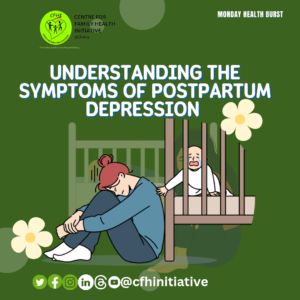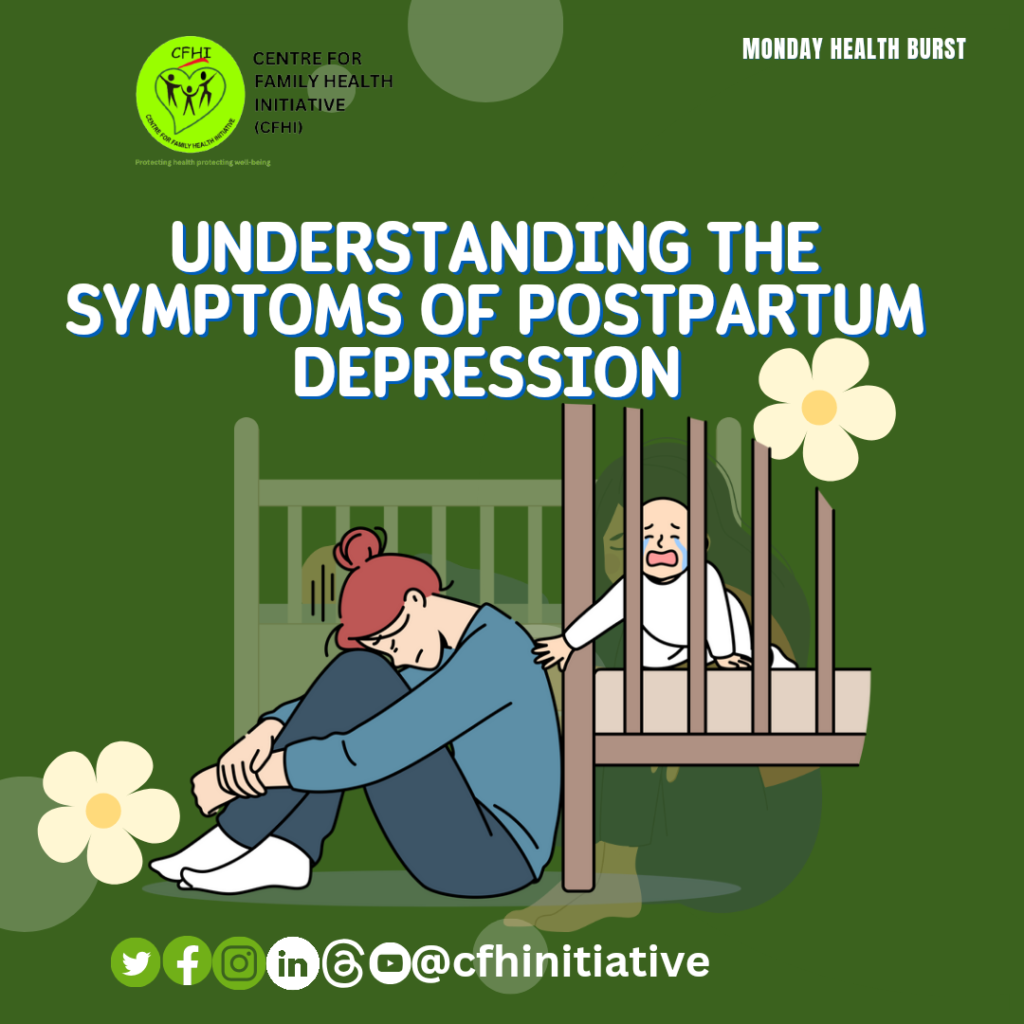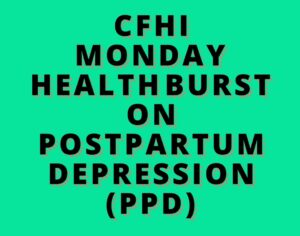MONDAY HEALTH BURST ON UNDERSTANDING POSTPARTUM DEPRESSION: EARLY SIGNS AND INTERVENTION
Postpartum depression (PPD) is a complex, multifaceted condition that affects many new mothers worldwide.1 It goes beyond the “baby blues,” a common experience characterized by mood swings, crying spells, and anxiety shortly after childbirth, typically resolving within two weeks. PPD, however, is more severe and enduring, requiring timely recognition and intervention to ensure the well-being of both the mother and the child. Understanding the symptoms and early signs of postpartum depression is crucial for effective intervention and support.
Early Signs of Postpartum Depression
Recognizing the early signs of PPD is the first step toward seeking help. These symptoms can appear anytime within the first year after childbirth, often peaking within the first three months. Key indicators include:
- Persistent Sadness or Low Mood: Unlike the transient sadness of baby blues, PPD is marked by a prolonged feeling of sadness, hopelessness, or emptiness.
- Loss of Interest or Pleasure: New mothers with PPD often lose interest in activities they once enjoyed, including bonding with their baby.
- Changes in Appetite and Weight: Significant weight loss or gain and changes in appetite can be symptoms of PPD.
- Sleep Disturbances: Insomnia or excessive sleeping, especially when not related to the baby’s needs, can indicate PPD.
- Fatigue and Loss of Energy: A pervasive lack of energy and chronic fatigue, beyond the typical exhaustion of new motherhood, are common signs.
- Feelings of Worthlessness or Guilt: Intense feelings of guilt, worthlessness, or inadequacy about being a good mother are prevalent in PPD.
- Difficulty Concentrating: Trouble focusing, making decisions, or remembering things can signal depression.
- Anxiety and Panic Attacks: Excessive worry about the baby’s health or one’s ability to care for the baby, sometimes escalating into panic attacks, is another symptom.
- Thoughts of Self-Harm or Harm to the Baby: In severe cases, mothers may have thoughts of harming themselves or their baby, indicating the need for urgent intervention.
Intervention and Support
Early intervention is crucial for improving outcomes for mothers experiencing postpartum depression (PPD). Seeking professional help, including therapy to address negative thought patterns and improve interpersonal relationships, is advisable. In moderate to severe cases, antidepressants may be prescribed, and it is essential to discuss the benefits and risks with a healthcare provider, particularly regarding breastfeeding. Additionally, it is important for mothers to get adequate rest, eat nutritious meals, engage in physical activity, and take time for relaxation. Involving family members in the care process can provide valuable emotional and practical support. Joining a support group can also help reduce feelings of isolation.
Postpartum depression is a serious condition that requires attention and care. By understanding the early signs and knowing when and how to seek intervention, mothers and their families can ensure better mental health outcomes. Early recognition and intervention are key to overcoming postpartum depression, fostering a healthier, happier postpartum experience.
Reference:
https://www.ncbi.nlm.nih.gov/pmc/articles/PMC10400812/

MONDAY HEALTH BURST ON UNDERSTANDING POSTPARTUM DEPRESSION: EARLY SIGNS AND INTERVENTION Read More »




